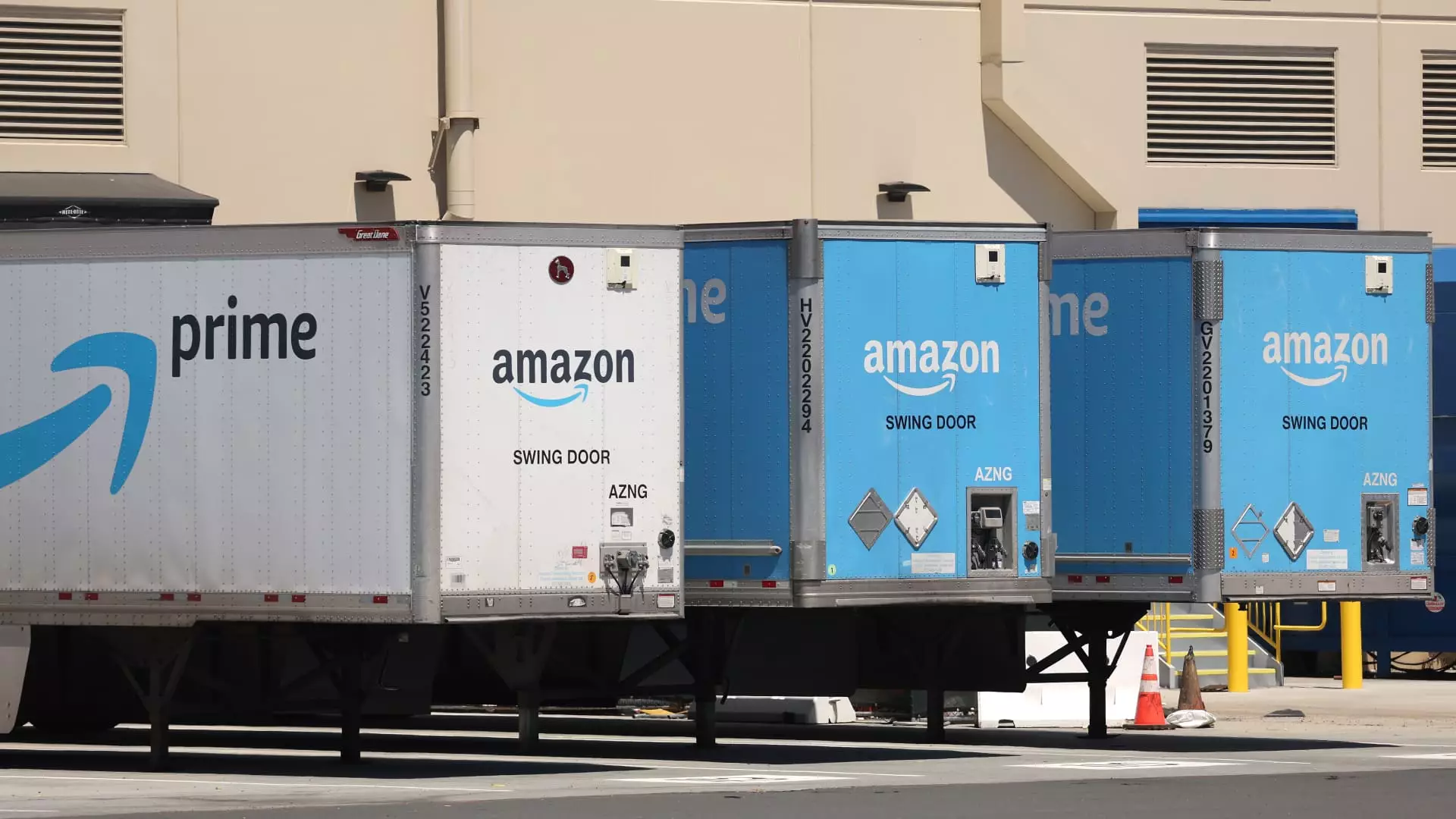In a shocking revelation, the Department of Justice (DOJ) unravelled an extensive organized crime operation tied to an Armenian syndicate, intricately involved in the audacious theft of over $83 million worth of cargo from the e-commerce giant Amazon. This scheme, which began as early as 2021, showcases the alarming lengths to which criminal organizations will go to exploit vulnerabilities in America’s supply chain, particularly in the context of the booming online retail market.
At the heart of the operation were four transport carriers known as AK Transportation, NBA Holdings, Belman Transport, and Markos Transportation, which operated under the guise of legitimate freight haulers. By leveraging Amazon Relay, a platform meant to streamline the logistics for truckers, these criminals manipulated the system, presenting themselves as trustworthy drivers while plotting their illicit gains. The fact that such a sophisticated operation could thrive underscores severe weaknesses in monitoring and enforcement resources.
The Anatomy of Cargo Theft
Cargo theft, also termed ‘cargo burglary,’ is not just a petty crime; it’s a well-orchestrated scheme costing American retailers nearly $1 billion annually. The DOJ’s complaint illustrates a true systematic breach of trust. The thieves strategically diverted from their assigned routes, swiftly siphoning off valuable goods—ranging from smart TVs to kitchen appliances—destined for legitimate consumers. This strategy not only enriched their pockets but also posed significant risks to the brands involved, including the reputations of these products in the marketplace.
The complexity of these thefts lays bare an unsettling truth. The rise of e-commerce has been accompanied by an explosion in cargo theft, where criminals are keenly aware of the vulnerabilities embedded within expansive supply chains. Despite Amazon’s efforts to combat this epidemic through heightened security measures and rigorous vetting processes, these criminals managed to navigate around existing barriers, exposing flaws that require remedying.
Consequences Beyond the Couch
Missing from much of the discussion around cargo theft are the broader implications that extend beyond the immediate monetary loss. Experts highlight that not only does this crime inflate operational costs for retailers, but it also triggers a cascade of reactions down the supply chain. The potential for increased prices for consumers, interrupted availability of products, and even the destabilization of certain sectors cannot be overlooked. Many consumers unknowingly purchase stolen goods, complicating the situation further for countless third-party sellers on platforms like Amazon.
Compounding this issue, reports indicate that there are significant alleged criminal activities linked with the defendants, ranging from armed offenses to healthcare fraud. This characterization of the accused as not just opportunistic thieves but as individuals potentially connected to a wider criminal network necessitates a broader law enforcement response. It raises urgent questions regarding the effectiveness of current policing strategies, particularly in more localized jurisdictions, which may be unable to anticipate or combat such organized efforts adequately.
Amazon’s Interventions: A Double-Edged Sword
As this story continues to develop, Amazon’s response to the theft should be caught in a lens of criticism and admiration alike. The company’s attempts to shield itself from the fallout of fraudulent activity are commendable—emphasizing the importance of cooperative strategies with law enforcement. It’s also worth discussing the complexity of their actions; for example, suspending numerous third-party sellers in the pursuit of cracking down on stolen inventory raises ethical dilemmas. Sellers have claimed innocence, presenting a paradox wherein protective measures against crime could endanger small businesses and livelihoods.
The shifting landscapes of e-commerce taxation, regulation, and consumer protection present ongoing challenges that inherently complicate any attempts at tighter security and fraud prevention. As Amazon continues to fortify its defenses against cargo theft, the ramifications extend indefinitely, keeping all stakeholders on edge. The cost of a stolen shipment is not simply borne by the corporation; it ends up aligning the interests of law enforcement, policymakers, retailers, and the consumer in a precarious balance.
The criminal ingenuity behind the Amazon cargo theft scheme offers a stark warning to retailers everywhere. As they innovate and expand their outreach, they must remain vigilant against the adaptive tactics of organized crime. It’s a clear indication that, in the battle against fraud, the fight is as much about ethical supply chains and corporate responsibility as it is about implementing advanced technological solutions.

